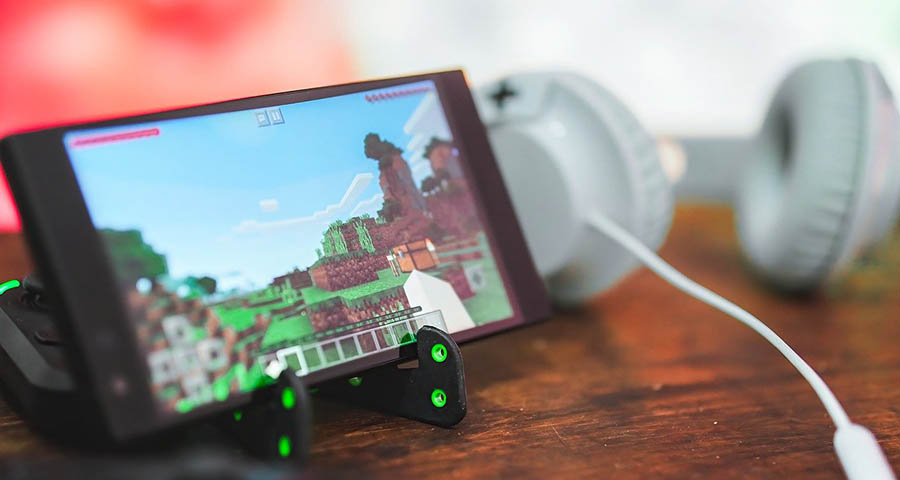Video games are as much a part of retro culture as they are a modern, 21st-century phenomenon. Gaming has transformed into a multi-billion dollar global industry, in which all manner of career paths are possible from VR designer to professional video gamer. And that’s to say nothing of the advanced technology that goes into today’s gaming consoles and PCs. Gaming is now at the peak of innovation and expansion, but the industry itself is still, for the most part, less than half a century old.
Even so, there’s hardly a household in the world that doesn’t possess some sort of gaming device in 2020. And great swathes of the global population are even carrying them in their pockets. This means that gaming is now more popular than it has ever been before, but how did we get here from those clunky prototypes of the late 20th century?
The 1980s
A few attempts had been made to introduce video games as a hobby to the mainstream masses, but it would be the 1980s that would properly launch them as a pastime for everyone. Arcades made gaming cool, with iconic titles like Pac-Man resonating with Generation X like nothing else.
As the decade progressed, games began to migrate into people’s homes with the launch of the first proper home console from Nintendo — the 8-bit Nintendo Entertainment System. The NES brought about platformers like Super Mario Brothers and immersive fantasy games like The Legend of Zelda, capturing the hearts and minds of gamers all over the world.
Keen to get in on the action, rival Japanese tech corp, SEGA, unleashed the Mega Drive/Genesis console as the decade drew to a close, setting in motion the console wars that would come to dominate the following decade.
The 1990s
If the 80s were all about bringing gaming into the home, the 1990s were about gaining and maintaining dominance in this surprisingly lucrative new industry. The battle between Nintendo and Sega consumed much of the decade, as the two went head to head with their respective consoles and flagship games. Gamers across the globe would either become loyal fans of Sonic The Hedgehog or the Super Mario Brothers, but never the two at the same time. Consequently, there was a lot of to-ing and fro-ing, with Sega gaining a stronghold one year, and Nintendo the next.
Another trend was emerging in the 90s however, that of ultra-violent beat ’em up games. Titles like Mortal Kombat and Street Fighter become the source of numerous controversial news stories, and gamers simply couldn’t get enough of these gore-fests.
The Noughties
As technology advanced considerably in the dawn of the new millennium, so too did the gaming industry. Online play became a possibility for consoler lovers as much as PC fans, with super-connected devices like Sony’s PlayStation and Microsoft’s Xbox 360 springing up in the marketplace.
Games became increasingly more interactive, which in turn led hardware manufactures to revamp the consoles they were launching. 2006 took gamers off their couches and got them moving and exercising in their living room, with the launch of the Nintendo Wii and its first-of-a-kind motion-sensitive technology.
Gaming was becoming more active in more ways than one, as the rapid development of mobile tech meant that engaging, social games like Angry Birds could be played just as easily from these pocket devices as a desktop PC.
The 2010s
Perhaps the biggest shift happened in the last decade, as the meteoric growth of key gaming markets made gaming more accessible, interactive, and rewarding than ever before.

The world’s largest content streaming platform, Twitch was launched at the start of the decade, and within a few years it made live-streaming the norm – and connected gamers across the globe in the process. More and more professional gaming tournaments sprang up, quickly merging into a now-powerful gaming industry in its own right, and subscription services like Steam and PlayStation Now provided gamers with fresh new ways to interact with their favourite games in real-time.
The Present Day
Here, in 2020, gaming is one of the biggest and fastest-growing global industries. Anything goes in today’s digital gaming ecosystem; from virtual reality games to online casino platforms, mobile gaming apps to eSports tournaments — each segment pulls in millions of gamers on a daily basis.
The companies and organisations that make up the industry have also changed dramatically since the early days. Although the big-name players like Electronic Arts, Rockstar, Nintendo, and Ubisoft still own major chunks of the market share, space has been created for indie developers to launch games that have gone on to be just as wildly successful.
With advanced tech like VR, AR, and cloud gaming services becoming more and more widespread, where gaming goes from here is anyone’s guess. One thing that’s certain, however, is that the gaming landscape will continue to be as diverse as the real world in which it has evolved.

